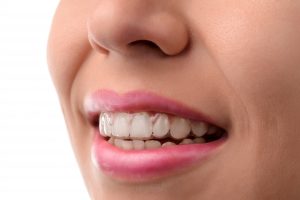 If you’re an adult and you’re interested in straightening your teeth, Invisalign probably sounds like the perfect treatment. It’s sleek, subtle, effective, and best of all, no one will even know you’re using it. But, what if you’ve had other dental work done? What if you’ve had braces before, or you’ve gotten veneers or crowns over the years? Will this make you not a good candidate for Invisalign? Read on below to find answers to these and other common questions.
If you’re an adult and you’re interested in straightening your teeth, Invisalign probably sounds like the perfect treatment. It’s sleek, subtle, effective, and best of all, no one will even know you’re using it. But, what if you’ve had other dental work done? What if you’ve had braces before, or you’ve gotten veneers or crowns over the years? Will this make you not a good candidate for Invisalign? Read on below to find answers to these and other common questions.
I had braces in the past, but my teeth have shifted. Can I use Invisalign now?
It’s very common for braces-treated teeth to partially shift back to their original positions, especially if a patient doesn’t consistently wear their retainer. Plus, it’s just a fact of life that our teeth tend to move as we age. If your teeth have moved after having braces, yes, you can now use Invisalign to correct any new issues that have popped up.
I’m currently wearing braces—is it possible to switch to Invisalign?
Maybe! This really all depends on your specific situation as well as the dentist currently treating you. It’s best to consult with them about making this switch. While some braces patients may be good candidates for Invisalign, others might specifically require traditional orthodontics.
Will Invisalign work if I have veneers or crowns?
Once again, it really depends. The best thing to do is talk with the dentist you’re hoping to get Invisalign from and simply let them know the extent of your dental work.
I’ve had bridgework done. Will Invisalign work for me?
Invisalign is designed to move each tooth individually, and bridges work by connecting two or more teeth together, which will make the treatment less effective or not effective at all.
I have dental implants. Can I get Invisalign?
It’s hard to answer this question definitively because dental implants can be used to help with varying degrees of tooth loss. If a patient just has a single implant, Invisalign is likely a viable option, but if someone has had multiple teeth replaced, then it might not be the best choice. Be sure to let your dentist know about your implants when asking about Invisalign, and they’ll be able to determine whether or not it will be a good fit.
What happens if I can’t get Invisalign because of my dental work?
If your dentist decides that Invisalign isn’t the right treatment for you, there are still other options that can help with crooked, crowded, or gapped teeth, including traditional braces, porcelain veneers, and dental crowns. Any one of these or a combination of them can help a patient achieve the perfectly straight smile they desire.
About the Author
Dr. Masha Kogan is a general, restorative, and cosmetic dentist who has practiced in Westport, CT for nearly 20 years. In that time, she has helped countless patients achieve the smiles of their dreams with Invisalign and many other cosmetically-focused treatments. If you’re thinking about getting Invisalign and still have more questions, she can be reached through her website.
